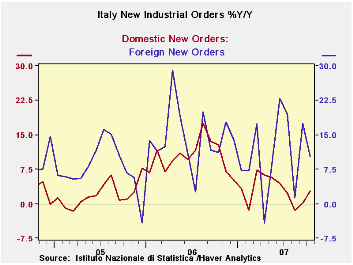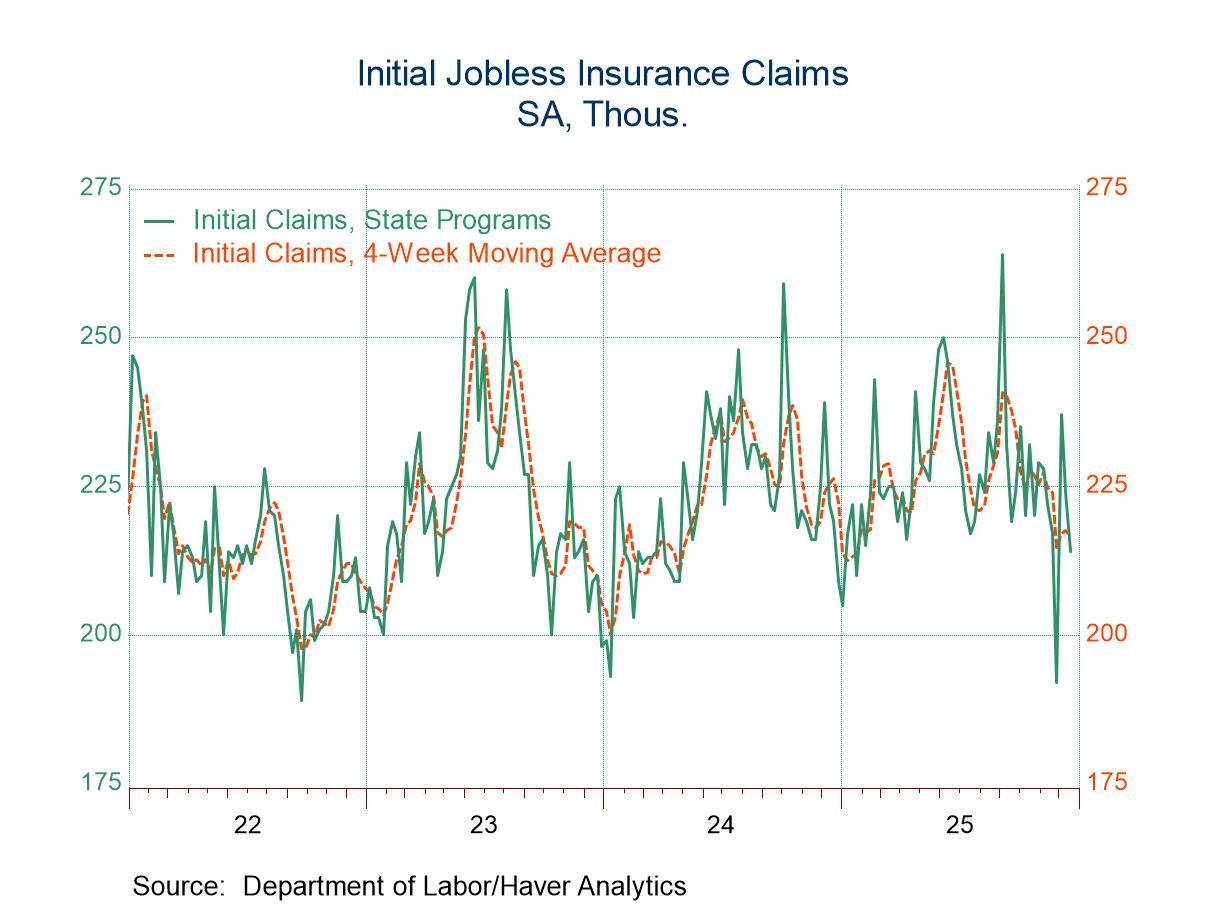 Global| Dec 19 2007
Global| Dec 19 2007Italy’s Orders Sag and Drop in New Quarter
Summary
Italy’s new orders are off in October, led by weakness in foreign orders on the month. But that drop only offsets the rise the month before. Domestic order weakness remains despite the 1.7% rise in October. Over three months both [...]

Italy’s new orders are off in October, led by weakness in
foreign orders on the month. But that drop only offsets the rise the
month before. Domestic order weakness remains despite the 1.7% rise in
October. Over three months both domestic and foreign orders are
falling. Yr/Yr foreign order growth is still strong at +10.2%, while
domestic orders are up by just 2.9% over 12-months. In the quarter to
date, total orders are dropping at a 6.3% pace, while foreign orders
are dropping at a 19% rate. Domestic orders in Q4 2007 are edging
upward a pace of 1.9% at an annualized rate.
| Italy Orders | ||||||
|---|---|---|---|---|---|---|
| Saar except m/m | Oct-07 | Sep-07 | Aug-07 | 3-mo | 6-mo | 12-mo |
| Total | -1.1% | 0.3% | -0.7% | -5.7% | 6.3% | 5.3% |
| Foreign | -5.6% | 5.6% | -4.1% | -16.3% | 12.5% | 10.2% |
| Domestic | 1.7% | -2.6% | 1.2% | 1.1% | 3.0% | 2.9% |
| Memo | ||||||
| Sales | -0.5% | -3.6% | 3.9% | -1.3% | 5.6% | 3.7% |
Robert Brusca
AuthorMore in Author Profile »Robert A. Brusca is Chief Economist of Fact and Opinion Economics, a consulting firm he founded in Manhattan. He has been an economist on Wall Street for over 25 years. He has visited central banking and large institutional clients in over 30 countries in his career as an economist. Mr. Brusca was a Divisional Research Chief at the Federal Reserve Bank of NY (Chief of the International Financial markets Division), a Fed Watcher at Irving Trust and Chief Economist at Nikko Securities International. He is widely quoted and appears in various media. Mr. Brusca holds an MA and Ph.D. in economics from Michigan State University and a BA in Economics from the University of Michigan. His research pursues his strong interests in non aligned policy economics as well as international economics. FAO Economics’ research targets investors to assist them in making better investment decisions in stocks, bonds and in a variety of international assets. The company does not manage money and has no conflicts in giving economic advice.






